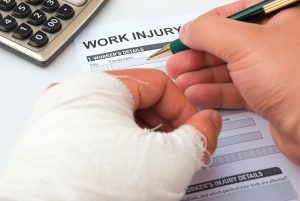Study Reveals Surprising Trends in Workplace Injuries

It’s easy to believe that workplace injuries only happen in certain occupations. For example, construction, manufacturing, and warehouse workers are the most at risk of sustaining injuries on the job.
However, recent research challenges this assumption. It reveals that workers in highly hazardous jobs are less prone to on-the-job injuries than those with moderately dangerous occupations.
Which types of workers are most at risk for workplace injuries?
A study based on 2019 Labor Department data assessed the injury rates across 571 occupations. The injury rate for hazardous jobs such as wellhead pumpers and boilermakers was around three incidents per thousand workers. In contrast, moderately risky jobs recorded significantly higher injury rates. That includes:
- 23 per thousand for pest-control specialists
- 43 per thousand for baggage handlers
- 120 per thousand for welders
At the same time, low-risk professions, such as human resource specialists or loan officers, displayed low injury rates.
A second study explored maritime accidents and their correlation with sea and wind conditions. The highest accident rates occurred when conditions were moderately hazardous, not during extreme conditions.
James Beck, an associate professor at the University of Waterloo in Canada, is one of the study’s co-authors. He sheds light on this paradox. Workers react differently in highly dangerous situations. For example, they often:
- Display caution by adhering to safety protocols
- Wear protective gear
- Follow stringent rules
However, this cautious behavior tends to dissipate in situations perceived as only moderately hazardous.
Video game study reinforces findings in workplace injuries
The researchers conducted a third study to gain deeper insights into worker behavior. In a controlled environment, they asked 92 undergraduates to engage in a simulated video game set in a warehouse. Participants were tasked with placing boxes on shelves with varying degrees of stability. The catch was that some shelves in closer proximity had a greater chance of collapsing.
The results showed that when participants faced a moderately hazardous scenario with a 30% chance of shelf collapse, accidents were 66% more frequent. That’s in contrast to simulations with 10% or 50% chances.
This research suggests that companies should emphasize precautionary measures when the overall risk only increases moderately. While many find it challenging to grasp such risk levels, focusing on precautions will likely reduce workplace accidents and injuries. This approach underscores the importance of worker training and awareness in maintaining workplace safety.
Common injuries in moderately dangerous workplaces
While the specific dangers can vary, some common types of workplace accidents in moderately hazardous jobs include:
- Slips, trips, and falls: In moderately hazardous jobs, such incidents can occur due to wet or uneven surfaces, cluttered workspaces, or inadequate lighting.
- Musculoskeletal injuries: Jobs involving repetitive tasks or lifting heavy objects can lead to musculoskeletal injuries. Back strains, muscle sprains, and joint problems are common.
- Struck-by accidents: Struck-by accidents can result from the improper storage of materials or the lack of protective barriers.
- Electrical accidents: Occupations that involve working with electrical equipment or machinery can lead to electrical shocks or fires if safety precautions are not followed.
- Exposure to hazardous materials: Some jobs may require handling or exposure to hazardous materials, chemicals, or substances. Accidents in such environments can lead to chemical burns, respiratory problems, or other health issues.
What to do if you sustained an injury on the job
If you sustained an injury on the job, you may be out of work for weeks or months while you recover. On top of that, the medical bills could pile up. The good news is that you can receive financial benefits through a workers’ compensation claim while you’re out of work. However, getting financial benefits isn’t as simple as it sounds. Any errors in your application or filing process could result in your benefits getting delayed or denied.
The Massachusetts and Rhode Island workers’ compensation attorneys at the Law Offices of Deborah G. Kohl can help you through the process. They can gather evidence to support your claim and advocate for maximum compensation on your behalf. To learn more about how we can help with your potential case, contact us online and set up your free initial consultation.
